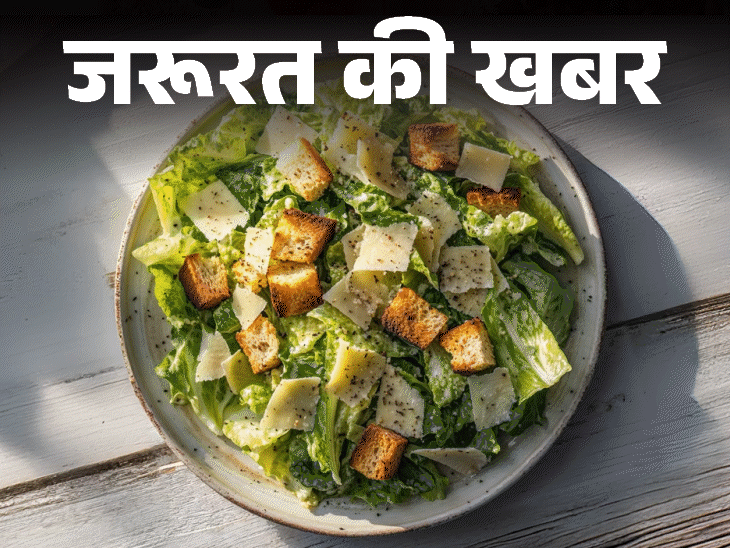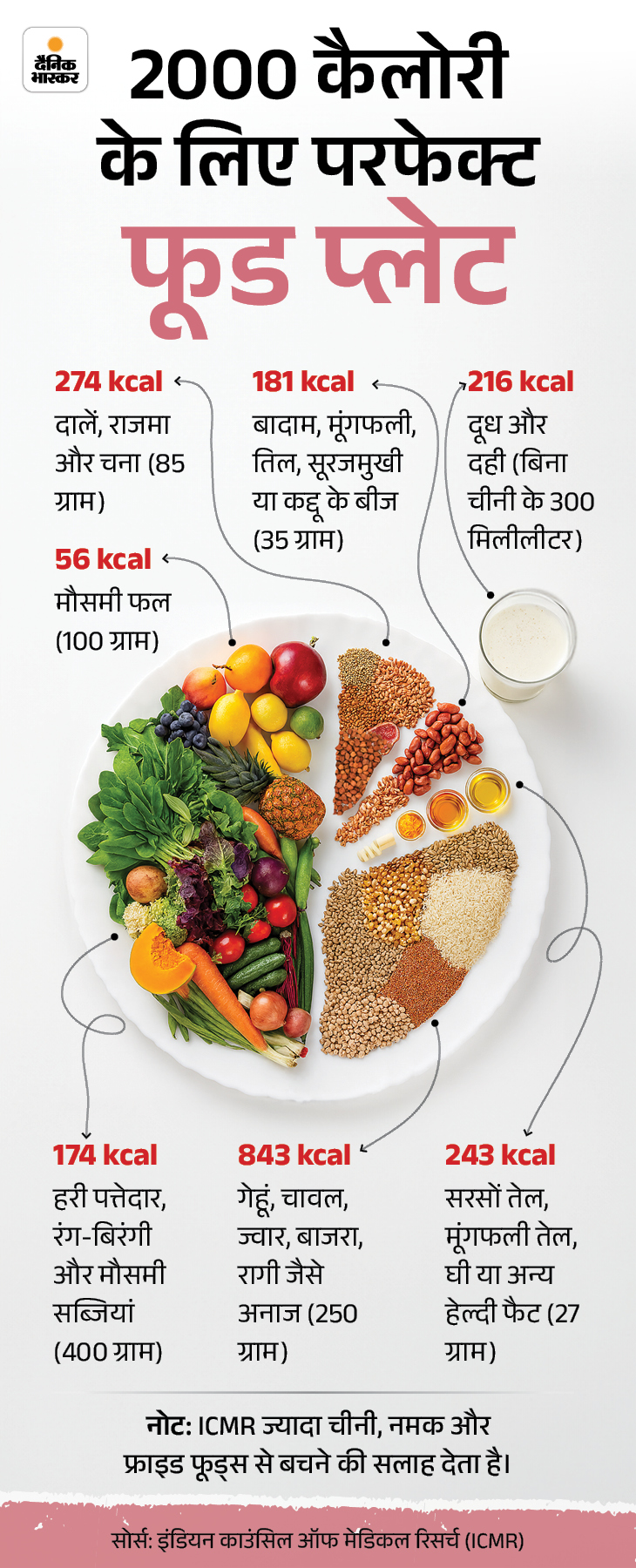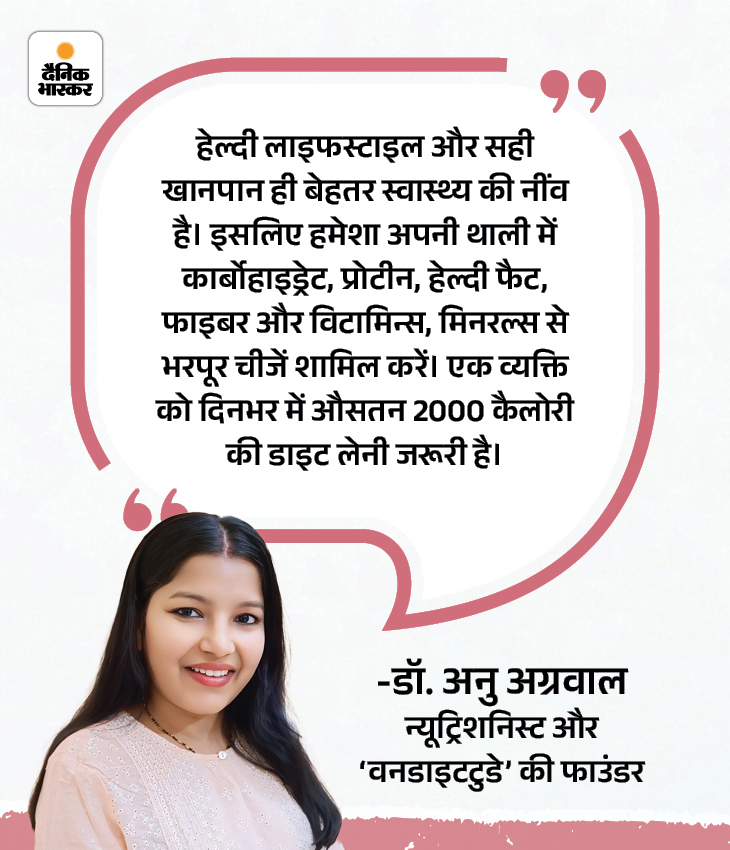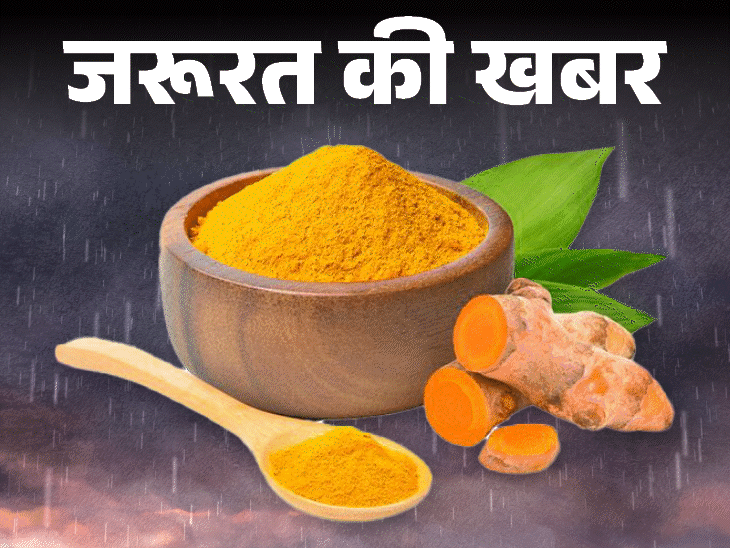15 minutes agoAuthor: Shivakant Shukla
- Copy link

Today In the era of adulterated, packaged and processed foods have made their place in almost every household. Due to this, the risk of diseases is also increasing rapidly.
According to a report by the Indian Council of Medical Research (ICMR) and the National Institute of Nutrition (NIN), about 56.4% of diseases in India are directly related to poor catering. This worrying figure makes us think about our health.
Keeping this situation in mind, ICMR has given some dietary guidelines for Indians. Its main objective is to make every person healthy, fit and disease free. According to NIN, a balanced diet and regular exercise can reduce the risk of diseases like heart disease, high blood pressure and type 2 diabetes by 80%.
So let us talk in detail about ICMR’s dietary guidelines in the news of need today. Also, you will know what should be kept in mind in the diet of children, elderly and pregnant women?
Expert: Dr. Anu Aggarwal, Nutritionist and Founder of ‘OneDettude’
Question- What are the suggestions given in ICMR’s dietary guidelines?
answer- ICMR’s dietary guidelines suggest that it is very important to have a balanced and nutritious diet for a healthy, active and disease -free life. These guidelines emphasize on pregnancy, childhood, adolescence and the elderly adopting the right catering habits.
It also states how regular physical activities, best food choices and right cooking methods can improve our health. Carefully understand the 17 dietary guidelines of ICMR from the graphic given below-

Question- What is healthy miles and which food should be included in it?
answer- According to ICMR, all nutrients like carbohydrates, protein, fat, fiber, vitamins and minerals should be present in balanced amounts in a healthy mile. This balance not only gives the body the strength to fight energy and diseases, but also reduces the risk of many diseases.
According to the United States Department of Agriculture (USDA), a healthy person needs around 2,000 to 3,000 calories daily, which depends on the person’s age, gender, physical activity and health conditions. See 2000 calorie diet charts for vegetarian people in the graphic below-

Question- What amount of salt and sugar should be eaten daily by a healthy person?
answer- According to ICMR’s dietary guidelines, salt and sugar should always be eaten in limited amounts. Excessive intake of this increases the risk of high blood pressure, diabetes, obesity and heart disease.
A total of 5 grams (less than one teaspoon) salt is sufficient daily. It also includes hidden salt (processed foods, salty, pickle etc.). At the same time, more than 25 to 30 grams (about 5-6 teaspoons) of sugar should not be eaten daily. It also includes sugar present in things like tea-coffee, sweets, packed juices and biscuits.
Question- What is the advice for pregnant women for diet?
answer- The second and third trimesters of pregnancy require about 350 calories more daily. Therefore, a little more diet should be taken during this time. But even more important it is important that the diet consists of nutrients like folic acid, iron, vitamin B12, iodine and calcium. Just increasing the diet is not beneficial. It should also contain all the necessary nutrients.

Question- What are the things to take care of in the diet of young children?
answer- Mother’s milk should be given to the child for 6 months from birth. After this, they should be given a soft and slightly solid food made at home. Such as mashed lentils, light khichdi and boiled and ground vegetables. Keep in mind that it is not correct from the point of view of nutrition to depend on just packaged baby foods.
Question- Why is it important to pay special attention to the diet of teenagers and sick children?
answer- During adolescence and disease, the body’s nutritional menstruation increases. Both these stages are important for development and recovery. For recovery of muscles and tissue at this time, protein, bones and blood for blood and good fat for energy and brain are needed more. Therefore, during this time special care should be taken of children’s food.
Question- Is physical activity only helpful in losing weight?
answer- No, Physical Activity is not only a weight loss. It improves digestion, metabolism, mood and nutrients of nutrients. According to ICMR, a fast 30-minute fast walk is under blood sugar control, cholesterol is better and mental health is better.
Question- Should the elderly be given only light food?
answer- No, the elderly can be reduced. But this does not mean that they should be given only khichdi or light food. They should be given nutrients rich in food. Such as milk, curd, eggs, cheese, sprouted grains, seasonal fruits and green vegetables etc. Keep in mind that the elderly need special care and support because their body has reached the slope.
,
Read this news of the need
News of the need- These 8 herbs will increase immunity in monsoon: Include in diet, learn benefits from nutritionist and way of eating

Due to increased moisture during the rainy season, bacteria and fungus grow rapidly, causing problems like colds, colds, cough, abdominal pain and skin infection. In such a situation, it is very important to keep the immunity strong. Read full news …



